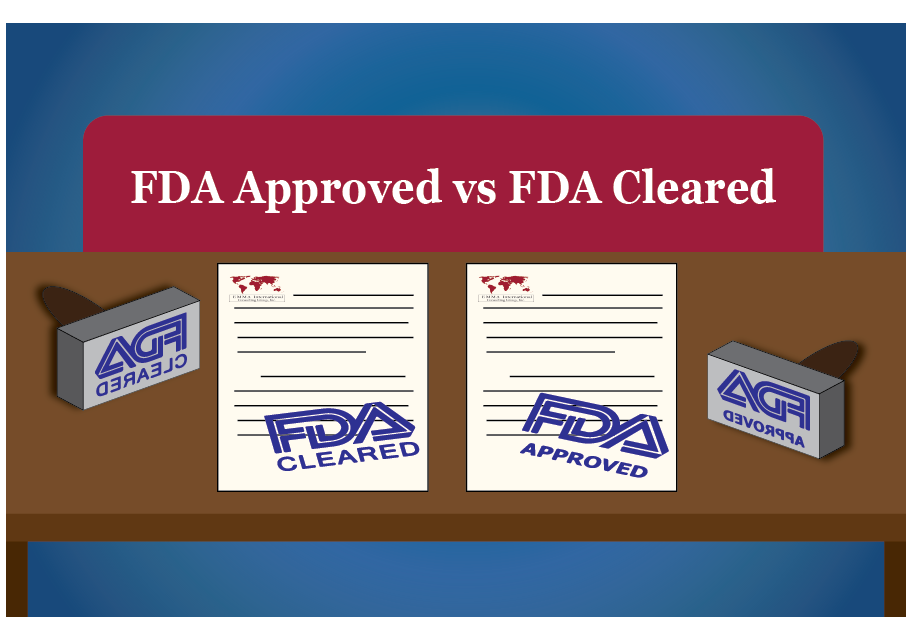On numerous occasions, we have seen companies’ websites and products boasting with an FDA approved stamp on it. While the FDA is responsible for protecting public health by regulating drugs, medical devices, tobacco, food, cosmetics, and radiation-emitting products; it does not approve all products in the categories above.
Here are some things to keep in mind while looking for FDA approved vs FDA cleared products:1
- FDA does not approve companies.1
FDA does not provide any kind of approval declaration for any manufacturing, healthcare or laboratory facilities. However, these facilities are required by law to follow standard quality practices and FDA has an authority to inspect these facilities. Owners and operators of most medical devices need to only register their facility with the FDA.
- FDA approves class III and humanitarian use devices.1
Class III devices are the ones classified to be with high risk to public health; while humanitarian use devices are devices that are used to treat conditions/disorders that affect less than 8000 people per year and are subject to a separate approval process called HDE (Humanitarian Device Exemption). All implantable devices fall under the class III category and receive an FDA approval by demonstrating with sufficient, valid and scientific evidence that the devices are safe and effective for the intended use.
- FDA generally clears class II devices.1
Moderate risk medical devices are categorized as Class II. These devices are generally cleared for marketing once they demonstrate that the device is substantially equivalent to a legally marketed predicate device.
Low-risk devices such as bandages, exam gloves are classified as class I devices and most of them are exempt from even submitting a premarket notification.
- FDA approves new drugs and biologics.1
New drugs and biologics must be proven safe and effective before companies can market them. The manufacturing process at these facilities must also follow quality practices. FDA reviews the results submitted within the application packet by the company but does not perform any tests on its own. If the FDA grants approval to the drug or biologic, it means that the benefits of the product outweigh the known risks.
Always be aware of what you claim on your product labeling, packaging or on your website. If you need help or guidance, or if you have any questions, reach out to us at 248-987-4497 or email us at info@emmainternational.com.
1FDA (January 2017) Is It Really ‘FDA Approved?’ retrieved on 05/06/2019 from https://www.fda.gov/consumers/consumer-updates/it-really-fda-approved






